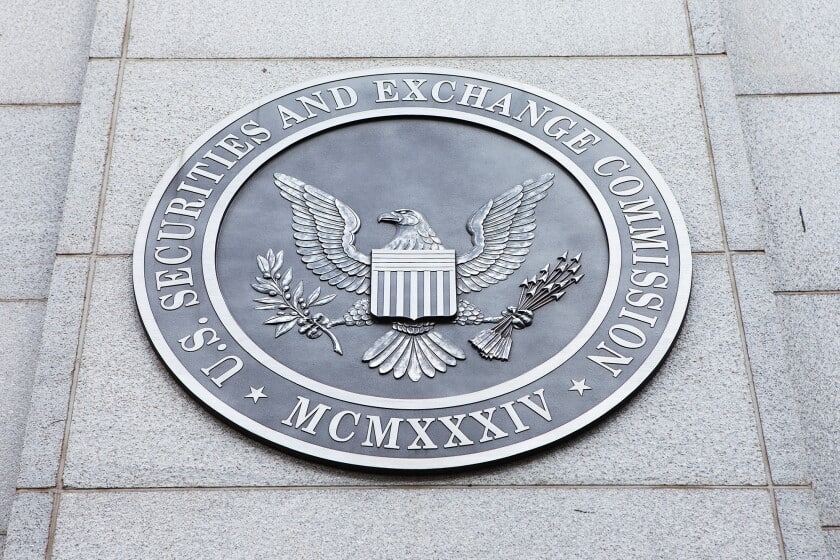A split Securities and Exchange Commission led by Chair Gary Gensler on Wednesday, Nov. 17, approved controversial rules giving institutional investors more flexibility to pick and choose incumbent and dissident director candidates on a universal proxy card.
Advisers to corporations and activist investors have diverging views about the rule, with company backers insisting it will open the floodgates, inspiring a raft of director contests empowered by proxy advisers by making it purportedly easier and cheaper to install one or two dissident directors. Investment advisers, alternatively, argue the real costs of contests are sufficiently high and hidden so that battles will continue to be waged by established activists, though strategies will change.
The rule allows investors who don’t vote in person at meetings to receive one proxy card including all incumbent and dissident director candidates, in both change-of-control and minority slate contests, a major change from the current system where investors voting remotely — as most institutional investors do — must vote on either an incumbent or dissident card.
Sidley Austin LLP partner Kai Liekefett, who advises companies, said he believes the UPC rule will create a seismic change in the ways proxy contests are fought in the U.S.
Liekefett added the UPC could encourage gadfly investors, nongovernmental organizations, pension funds or other investors to launch contests because the new system makes it cheaper to get dissident candidates on the company’s proxy card. “They will find a way to do this that is cost effective,” he said.
Corporate advisers insist that dissident directors have a key advantage with the UPC system, namely that the corporations by law must distribute proxy cards with incumbent and dissident candidates to the entire investor base, including retail and smaller institutions. Alternatively, investors must only solicit 67% of shares, which corporate advisers point out is easy to do by sending a postcard with a link to a website to a few large institutions in many cases.
“Distributing the proxy card with the director candidates is one of the most expensive enterprises in a contest, particularly at companies like Exxon with a large retail investor base,” Liekefett said. “The company will distribute the card with both slates to everyone, including retail shareholders.”
He added that investors receiving company cards with both slates will “go to Google” and find dissident fight letters and websites dedicated to the campaign.
A not insignificant cost for activists in the outgoing system is to get a proxy card with their nominees in the hands of as many voters as possible. “The investor needs to send the proxy card with its slate to every investor it wants to have vote for its candidates and do it multiple times,” Liekefett said. “That’s one of the most expensive enterprises, particularly at large companies with big retail components.”
Eduardo Gallardo, a partner at Gibson, Dunn & Crutcher LLP who also advises companies, said the requirement for investors to solicit two-thirds of shares is essentially meaningless since investors engaged in director contests already solicit that many shares.
“Soliciting doesn’t mean you have to have a roadshow to meet with 67% of investors, it just means you have to get your proxy statement to two-thirds of shares, which already happens,” Gallardo said.
Gallardo said he expects universal proxy cards will encourage more contests since the measure makes it easier for investors to support one or two dissident director candidates.
“Both traditional activists and Engine No. 1 wannabes using the ESG platform will seek to launch contests, with better odds of getting one or two directors elected,” he said. “Before the UPC, shareholders had more of an all-or-nothing choice, but now they will be more easily able to pick and choose among competing slates.”
Gallardo agreed that activists get an advantage under the requirement that companies must distribute cards to all investors.
“In the traditional contest each side had to do several mailings with their cards listing their candidates each time the other side did one, so there was a constant effort by both sides to make sure that their proxy card was the last one in front of shareholders,” Gallardo said. “This was a high cost, but now every time the company does a proxy card mailing it has to include a universal proxy with the other side’s nominees.”
Andrew Freedman, a partner at Olshan Frome Wolosky LLP who typically represents activists, however, rejected the notion the UPC would open up the director election floodgates. A key issue: Distributions to shareholders are only a small part of the overall cost of the campaign, which makes a director battle often prohibitively expensive. The initial costs of filing proxy materials with the SEC is a major undertaking and can cost between $50,000 and $200,000, he added.
“You don’t even get to the stage of mailing your proxy materials to investors, which is expensive, too, until you file your proxy materials with the SEC,” he said.
In addition, many corporations have sophisticated advanced notice bylaws and lengthy questionnaires about dissident director candidates that must be filled and updated with follow-up answers, adding to costs and complications for the investor. A number of other expensive requirements exist as well.
“You have to hire a PR firm, a proxy solicitation firm and sometimes bankers,” Freedman said. “Can a small mom-and-pop retail investor submit proxy material and launch a director contest? Yes, but they won’t have credibility with their campaign.”
Freedman also noted that Canada has made it easy to use universal proxy cards for elections and the system hasn’t unleashed a wave of contests. According to a 2020 Fasken Martineau DuMoulin LLP report, four of six contests in Canada in 2019 employed universal proxy cards.
“We will still see the same kinds of contests as we see today, employed by the same investors, only the solicitation strategy and number of candidates they nominate may change,” Freedman said. “The fight gets waged on the merits. Underperforming companies with poor governance along with E and S and G issues will still face contests.”
Corporations, Freedman said, often have sought to employ universal cards without giving investors the authority to use them as well. “The fairest structure is to give UPC for all,” he said.
Liekefett pushed back, however, arguing that investors without director nomination experience can launch contests without much cost at companies with simple advanced notice bylaws. Many companies, he insisted, including many large corporations, still have simple bylaws.
“There are advanced notice bylaws that require a lot of information, and then there are more simple notice bylaws that anyone who just finished three gin and tonics can comply with,” he said.
Change of Control Contests Grow Tougher
Both activist and corporate advisers agreed that the UPC could make it harder for activists and unsolicited bidders seeking to elect a change-of-control slate of directors. Freedman said such contests could have a tougher time gaining traction because investors will have an easier time picking and choosing incumbent and dissident director candidates on a UPC.
Gallardo agreed that the rule could make it tougher for activists and unsolicited bidders to get a majority or significant number of directors elected in control contests, arguing it was a silver lining for companies. “Under the outgoing system, if you are an activist you are more likely to get proxy advisers to recommend on your card for a large portion of your slate, but with the UPC investors may say, ‘Why would I give activists control; why don’t I give them one or two seats,’” he said.
In other cases, the system might give activists an edge. In one scenario, a company has a classified board and one of the three directors up for election is the CEO.
“Investors may not want to remove the CEO from the board, so they have historically been far less apt to vote on the dissident’s card,” Freedman said. “But now they will have more flexibility to pick directors, and perhaps they will vote on the activist’s card instead, where they can support the CEO and dissident nominees.”
Nomination Deadlines Get Thorny
The UPC complicates the process of meeting corporate director nomination deadlines. Companies will still maintain existing deadlines set up in their bylaws, which vary but often require candidates to be nominated between 90 and 120 days before the anniversary of the previous year’s annual meeting. The UPC rules, however, add new deadlines — investors must notify companies of their intent to nominate 60 days before the anniversary of the previous year’s annual meeting, and companies will need to provide dissidents with their incumbent director slate 10 days later.
“I would have liked to see a more even playing field,’ Freedman said. “[Activists] have to give our nominees 10 days before [companies] have to provide theirs.”
In practicality, Freedman argued that the UPC deadlines represent a final notice, as bylaws dictate that dissidents will typically be required to submit their candidates roughly a month or so earlier.
Proxy Advisers May Gain Influence
Corporate backers also insisted universal proxy cards will give proxy advisers Institutional Shareholder Services Inc. and Glass, Lewis & Co. LLC more power and influence. ISS praised the rule, calling it a significant milestone.
“UPC is nirvana for ISS and Glass Lewis,” Gallardo said. “They will have the flexibility of mixing and matching candidates because they are no longer constrained by the cards.”
Freedman, though, disputed the idea that universal proxy cards will give proxy advisers more power. Instead, he suggested, it gives the advisers the ability to have more clarity in their recommendations, he said.
“ISS often can’t reflect their true recommendation with the current one-or-the-other proxy card system,” he said.
Editor’s note: The original version of this article was published earlier on The Deal’s premium subscription website. For access, log in to TheDeal.com or use the form below to request a free trial.




